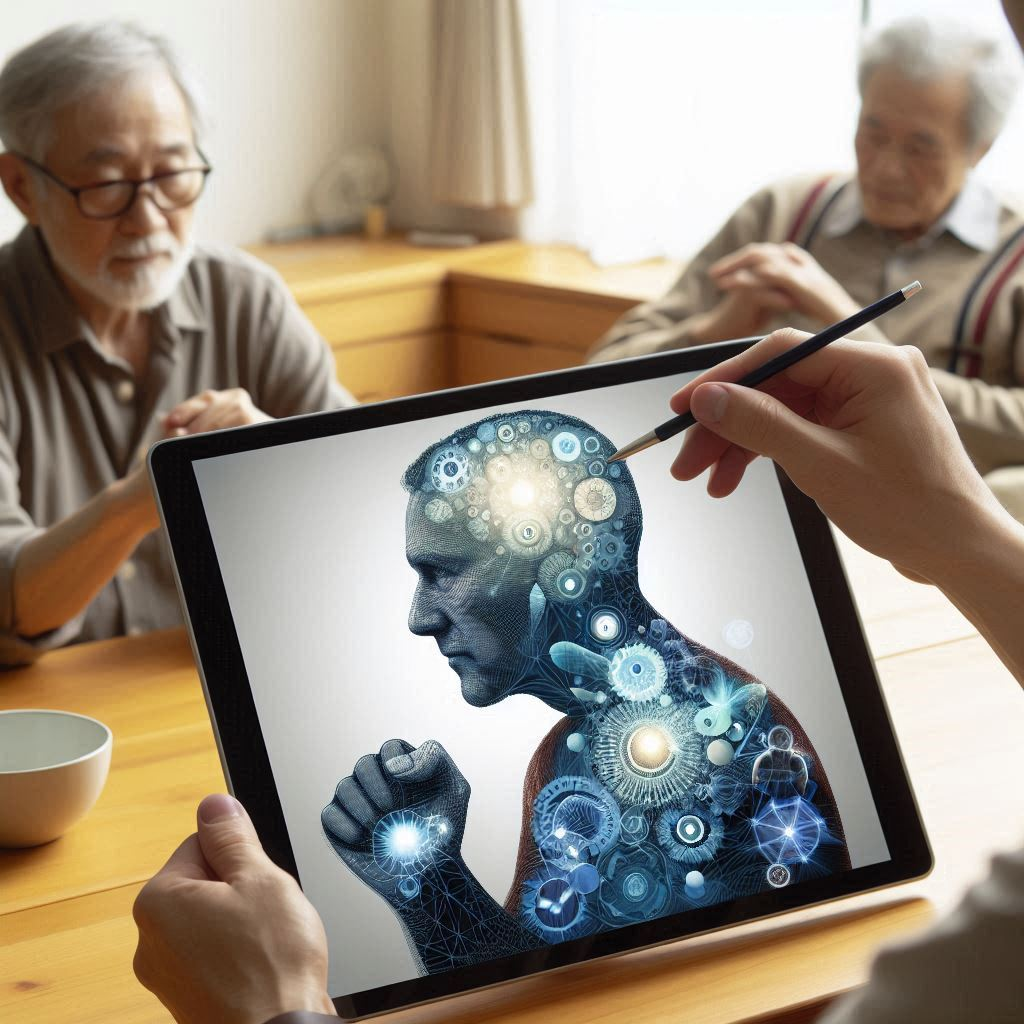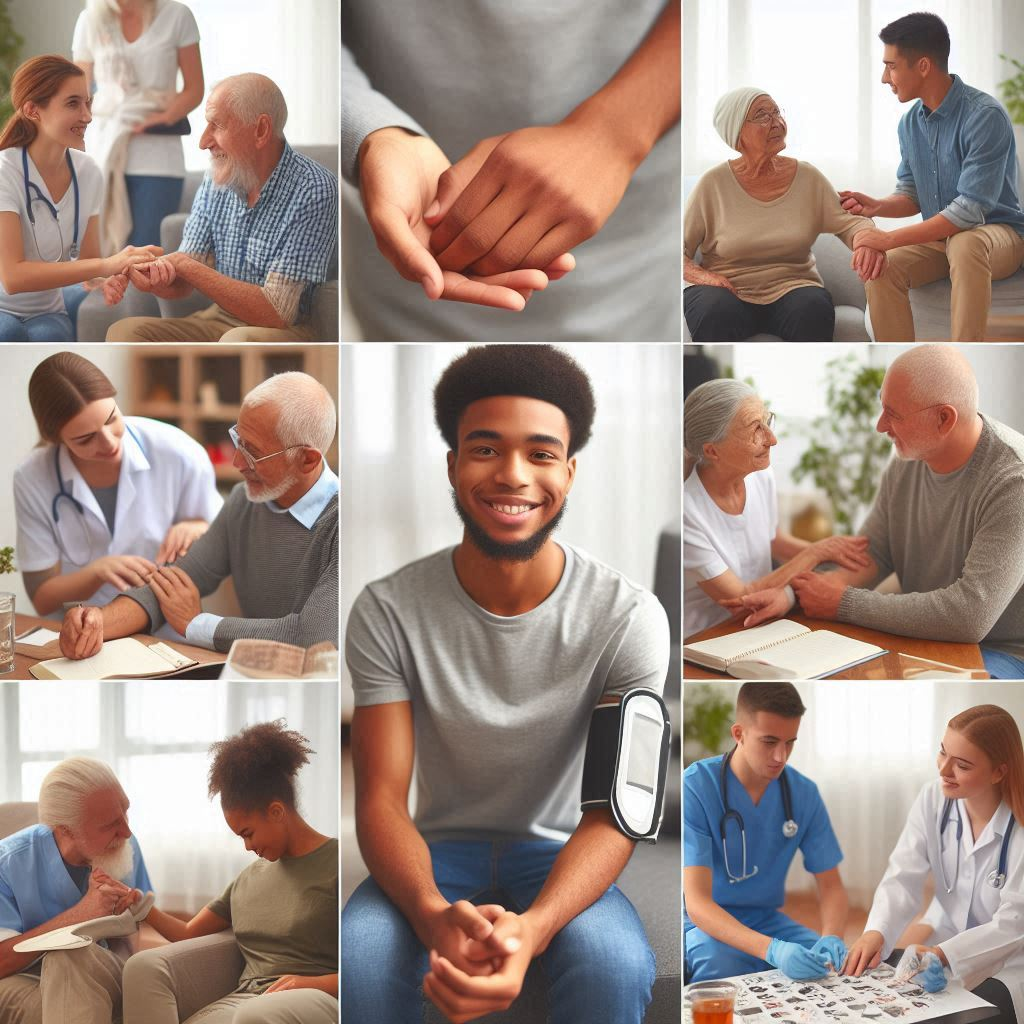 Lately, I’ve been sharing blog posts that harken back to the dark days in the first few weeks and months upon learning that I had Young Onset Dementia; I’ll likely round back on that subject matter at some point in time again, but for now, I’d prefer to change tenor here with this post on a more upbeat and practical approach to mitigating one’s diagnosis via Dementia Rehabilitation.
Lately, I’ve been sharing blog posts that harken back to the dark days in the first few weeks and months upon learning that I had Young Onset Dementia; I’ll likely round back on that subject matter at some point in time again, but for now, I’d prefer to change tenor here with this post on a more upbeat and practical approach to mitigating one’s diagnosis via Dementia Rehabilitation.
Dementia Rehabilitation (and why It’s not just a fancy term for “good luck!”)
When you hear the word rehabilitation, you might picture someone learning to walk again after an injury or maybe an intense gym routine with a personal trainer yammering motivational quotes in your ear. But dementia rehabilitation? That one doesn’t get nearly enough airtime—and it should because it’s not about trying to “fix” someone’s memory or turn back the clock, and more about helping people to live well, in the here and now, on their terms, in spite of their dementia diagnosis.
Let’s Unpack That:
At its core,Dementia Rehabilitation is also personalized and focused on those with dementia can do in the here and now, as opposed to dwelling on the past,whether that’s their independence, or finding joy in everyday moments and staying connected to the people most important in their life.
 What We Talk About When Talk About Dementia Rehabilitation (DR)
What We Talk About When Talk About Dementia Rehabilitation (DR)
Think of Dementia Rehabilitation as the opposite of traditional palliative care that’s “How can you make your life work for you again in the here and now with a variety of tactics to keep yourself active,such as frequent walks in your local park or working memory strategies skills, and cooking your favourite meal and navigate public transportation again.
And hey, why not a bingo night with your besties? We haven't done that in a while?….you get the gist.
It’s All About Self-Agency
The point is, figuring out regular routines that make you feel good about yourself that are good for your brain and body will reap benefits in taking control of your Dementia diagnosis in the long run.
Dementia Rehabilitation: A Stroll Through The Years…
Historically, dementia care simply meant keeping patients with dementia reasonably safe in hospices and managing their baseline symptoms through palliative care, and that’s about it; patients’ independence wasn’t the goal via questionable palliative care standards behind closed doors.
And then…The Big Mindset Shift.
Starting In the late 70’s and 80’s and onward, people started asking: But wait, why can’t folks with dementia be part of their own care? Why can’t we support dementia like we do with strokes or brain injuries?
Turns out, they could.
And thus, the dawn of Dementia Rehabilitation arrived, and took shape, alongside adjunct dementia treatments over the coming years that include Occupational Therapy, speech therapy, physiotherapy, exercise physiology, physical activity and social connection programs as well as digital tools that led to better for those with dementia in maintaining their agency going forward. (And by the way, can I get a “woot! woot! to all those talking clocks and reminder apps yo!).
Now, Cutting To The Chase: A glorious listicle of reminders on why Dementia Rehabilitation is the real deal, in “Snazzy” Listicle Format…
#1 Dementia Rehabilitation keeps people doing their thing for as long as they can, from keeping up with your besties, to dancing when nobody’s watching and hanging out with the people you love most - exercising your everyday abilities will come back to you in spades in the long run.
#2 Dementia Rehab also helps folks keep active and mentally capable for as long as possible—and sometimes D.R. can even gain back a few other skills you may have thought were already gone.
#3 Because Dementia Rehabilitation builds up one’s self-agency again, (aka, the “I Got This” Vibe).
#4 Gaining Back Self Agency
One of the toughest aspects of living with dementia is the sense of loss of control in your world. Luckily, “D.R.” addresses that too: it’s all about gaining back control of your life in meaningful yet simple ways, from choosing what to wear each day, to meeting up with your best besties for a night on the town, and what you're cooking for dinner that night.
#5 D.R. Also Boosts Your Mood and Confidence…
With the right support structure, people with Dementia feel more like themselves with less confusion and anxiety, and more like “Hey, I remember how to do this!” moments. -That’s gold!
#And It’s Not Just For The Person with Dementia, it’s for you, too, Dementia partner.
Families and care partners are part of the team. Rehab teaches them how to support—not smother—independence. No one wants their partner to treat them like a toddler just because they forgot where they put the remote.
And Last, But Not Least - A Primer On Primary Dementia Rehabilitation Strategies To Keep You Fit and “In The Know”.
Cognitive Training: Tricks and techniques to help with memory, planning, and focus.
Physical Rehab: Movement and strength training to keep the body in gear (can be supported with an Exercise Physiologist (EP))
Occupational Therapy: Strategies for handling daily tasks with confidence (and less frustration).
Speech Therapy: Because many people with dementia have speech and communication disabilities, and later in the disease, swallowing difficulties
Exercise Physiology: Many people with dementia benefit from the support of an EP, for motivation, accountability and to keep them on track with how to do exercises
Physiotherapy: Supports their functional capacity
Neuro physiotherapy: Specific support for neuro changes, such as balance, visual changes due to dementia, gait and so on
Emotional and Social Support: Because isolation is the real memory thief
Assistive Tech: Gadgets that help with reminders, directions, and safety.
The Big Picture:
Dementia rehabilitation doesn’t offer a cure, it does offer something just as powerful; the chance to live with purpose, pride, and independence.
You’re still you, so help yourself to stay that way for as long as possible.
Further Reading
For further reading on dementia rehabilitation, check out these articles recommended by DAI co-founder, Kate Swaffer:
🌟 About DAI
Dementia Alliance International (DAI) is a global advocacy and support organization led by and for people living with dementia. Our mission is to empower individuals with dementia to live with dignity, purpose, and support through peer-to-peer connections, education, and advocacy. Read more here.
🤝 Join Us
Are you living with dementia? Become a member today to access our peer support groups, webinars, and a global community of peers. Membership is free and open to people with a confirmed dementia diagnosis. Sign up here.
💙 Support Our Work
Your donations help us continue to provide free support services, raise awareness, and advocate for the rights of people living with dementia. Every contribution makes a difference. Donate here.
🔗 Connect With Us
Follow us on social media to stay updated!
Facebook | Twitter/X | Instagram | LinkedIn | YouTube
Or contact us directly at [email protected]
